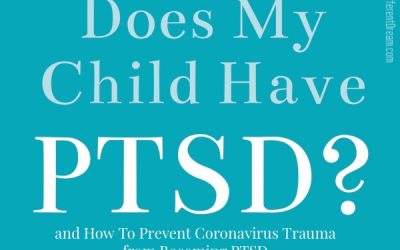How to Beat Caregiver Stress Syndrome, Part 1

Caregiver stress is a reality for families caring for loved ones. Dr. Charles Bowers, a retired OB/GYN, wants to equip parents of kids with special needs to recognize stress and cope with it. In Part 1 of his 2-part series, Dr. Bowers defines caregiver stress syndrome and lists its symptoms. Tomorrow he’ll be back with suggestions about how to cope with the syndrome and find resources.
How to Beat Caregiver Stress Syndrome, Part 1
The role of caretaker for a loved one is a role that most people never expect to play in the lives of the people they love—at least not to the degree that is often required of them. Many also don’t realize that the role of a caregiver can put their own health—both physically and emotionally—in harm’s way. Caring for any child involves considerable time, energy, love, and patience, but the demands placed on a parent of a special needs child can impact the physical and emotional health of the caregiving parent.
If you are a caregiver for a special needs child, it’s important to know that you are not alone. Caregiver Action Network reports that 14 percent of family caregivers care for a special needs child, with an estimated 16.8 million caring for special needs children under 18 years old. 55 percent of these caregivers are caring for their own children.
Not surprisingly, many of these caregivers are suffering from a condition increasingly known as “caregiver stress syndrome.” To cope with this condition—or better yet, beat it—it is helpful to know what it is and the common symptoms it’s associated with, in addition to applying some practical tips for curtailing it.
What is Caregiver Stress Syndrome?
Building of a strong bond, closeness, and intimacy with your child are just a few of the many rewards for caring for a special needs child. There are also many stressors which can lead to caregiver stress syndrome.
Caregiver stress syndrome is the aptly-named condition often experienced by parents who are caregivers of a special needs child, such as a child who has Down syndrome, autism, or cerebral palsy for example. Dr. Jean Posner, a Baltimore, MD neuropsychiatrist, describes caregiver stress syndrome as a “Debilitating condition brought on by unrelieved, constant caring for a person with a chronic illness or disability.” For parents of a special needs child, it can mean experiencing extreme exhaustion, guilt, or even resentment, in addition to many other symptoms.
Symptoms of Caregiver Stress Syndrome
Many parents in the role of caregiver of a special needs child don’t even realize that they have a recognizable condition. They chalk it up to simply being super busy or being overly tired. However, caregiver stress syndrome is real.
Common symptoms shared by those who have this condition can be divided into two primary categories: physical and emotional.
Physical Symptoms of Caregiver Stress Syndrome
The physical symptoms, if left unchecked, can have long-term consequences to your physical health and emotional well-being, as well as your ability to provide the level of loving care your special needs child requires.
- Excessive weight gain or loss
- Poor diet and fitness
- Sleeping more or less than usual
- Inability to concentrate
- Frequent headaches
- Other health problems
Emotional Symptoms of Caregiver Stress Syndrome
The emotional or psychological symptoms of caregiver stress syndrome may feel alarming to you. Many people who experience these symptoms are often reluctant to discuss them openly.
- Guilt
- Chronic sadness
- Anger
- Anxiety
- Resentment
- Constantly feeling overwhelmed
- Constant worry
- Alcohol or drug abuse
- Shock
- Depression
Come Back Tomorrow!
Once again, Dr. Bowers will be back Thursday with suggestions for coping with caregiver stress syndrome and a list of helpful resources.
How to Beat Caregiver Stress Syndrome, Part 2
Do you like what you see at DifferentDream.com? You can receive more great content by subscribing to the quarterly Different Dream newsletter and signing up for the daily RSS feed delivered to your email inbox. You can sign up for the first in the pop up box and the second at the bottom of this page.
Photo Credit: www.freedigitalphotos.net

By Charles Bowers
Dr. Charles Bowers is a retired OB/GYN with more than three decades of medical experience. He now works as a medical forensics evaluator for Philadelphia-based Ross Feller Casey, LLP.
Subscribe for Updates from Jolene
Related Posts
When Caregiving Sparks Stress Instead of Joy, What Can You Do?
When caregiving sparks stress instead of joy, what can you do? Jolene explains practical ways to find the blessings in hard situations.
Using the 5 Love Languages to Help Traumatized Kids
Using the 5 love languages to help traumatized kids makes sense. Whatever causes the trauma, these reasons show why the love languages help.
The Coronavirus, Trauma, and PTSD
The COVID-19 pandemic is causing uneasiness in many children. This post about the coronavirus, trauma, and PTSD explains how parents can tend to their kids’ mental health.






0 Comments